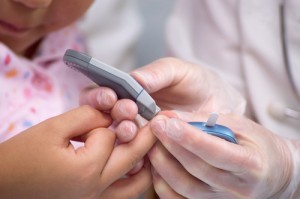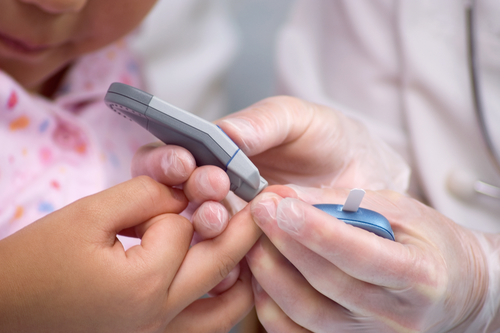 Novo Nordisk released new data from the clinical trial, BEGIN YOUNG 1, a study comparing a once-daily Tresiba (insulin degludec) regime, an ultralong-acting basal insulin analogue, with an insulin detemir regime, a long-acting human insulin analogue. Both of these insulin analogues were tested in combination with bolus insulin aspart, a rapid-acting insulin analog, in a 52-week trial in children and adolescents with type 1 diabetes. This is the first study ever done to assess long-term safety of Tresiba in children and adolescents from age 1 to 18 years. The results show that Tresiba in combination with insulin aspart effectively improved long-term glycemic control.
Novo Nordisk released new data from the clinical trial, BEGIN YOUNG 1, a study comparing a once-daily Tresiba (insulin degludec) regime, an ultralong-acting basal insulin analogue, with an insulin detemir regime, a long-acting human insulin analogue. Both of these insulin analogues were tested in combination with bolus insulin aspart, a rapid-acting insulin analog, in a 52-week trial in children and adolescents with type 1 diabetes. This is the first study ever done to assess long-term safety of Tresiba in children and adolescents from age 1 to 18 years. The results show that Tresiba in combination with insulin aspart effectively improved long-term glycemic control.
Formally called juvenile diabetes, type 1 diabetes is usually diagnosed in children and young adults. Only 5% of people with diabetes have this form of the disease. Novo Nordisk, located in Denmark, focuses its research and development on diabetes, as well as hemophilia care, growth hormone, and hormone replacement therapies.
“When treating children and adolescents with type 1 diabetes, it is critical that the right balance between glycemic control and side effect management is maintained to ensure the best possible long-term outcomes. These data show that Tresiba has the potential to offer youngsters with diabetes a new treatment option, which may help them achieve better control of their diabetes,” said Dr. Nandu Thalange, pediatric endocrinologist at Norfolk and Norwich University Hospital, Norwich, United Kingdom.
The BEGIN YOUNG 1 was a randomized, controlled, 26-week open-label, treat-to-target trial (with a 26-week extension) with well-defined and specific physiologic targets. The trial tested the efficacy and safety of Tresiba, given once a day, and insulin detemir, given once or twice a day, both in combination with bolus insulin aspart. The analogues were assessed in children and adolescents with type 1 diabetes.
The mean change in HbA1c (glycated hemoglobin), a measurement to assess the average plasma glucose concentration over long periods of time, (p<0.05) at 26 weeks, was similar between Tresiba and insulin detemir regimes. In the 26-week extension with the Tresiba regime it was observed a lower insulin dose and a significantly greater reduction in fasting plasma glucose (FPG) when compared with insulin detemir (p<0.05). Both regimens had similar rates of overall and nocturnal hypoglycemia, the rate of severe hypoglycemia was numerically higher with insulin degludec plus insulin aspart1. Notably, patients on Tresiba had significantly lower rates of hyperglycemia with ketosis (p<0.05). Tresiba increased weight (measured as SD score) while with insulin detemir remained unchanged. Adverse event profiles were similar for insulin degludec and insulin detemir.
The new data will enable Novo Nordisk to progress in its research and development of Tresiba to further advance type 1 diabetes treatments for children and adolescents.


